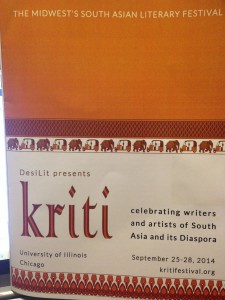Writers, Jealousy and Lack of Room at the Table.
I suppose all of us at some point or the other even, if just for a single moment, have felt the bite of jealousy, the teeth sinking into the thought of ‘well there goes that chance for me’. Writers of Color are often up against agents and editors who say ‘ we’ve already got an author from (fill in your South Asian, or other, country of choice), a book just like yours because there’s only one story that readers will be willing to read about this group, or can you set this novel in Iraq (or area of interest du jour). The following article is on jealousy when there are limited seats at the table (whether true or artificially sustained, I don’t know).
There’s an email waiting in my inbox from a friend. It has a simple one word title and an exclamation point. It reads: they’ve gotten a fellowship/are going on a writer’s retreat/are heading to a conference for rad activist folk! They’re excited, and there’s already a trail of ‘reply all’ responses saying “congratulations, you deserve it!” I half-smile, maybe even fire an email back, then navigate away. I’ll click through Facebook and see others have similar news – some putting the #humblebrag tactic to use and others open-faced. I finally stop scrolling and close my laptop to pick up my notebook. I feel the little tick in my brain, just a little one. It makes it harder to focus on my sentences. By then, I know it’s already too late. I tap my foot and clench my pen. The monster’s caught up with me. read rest here.




